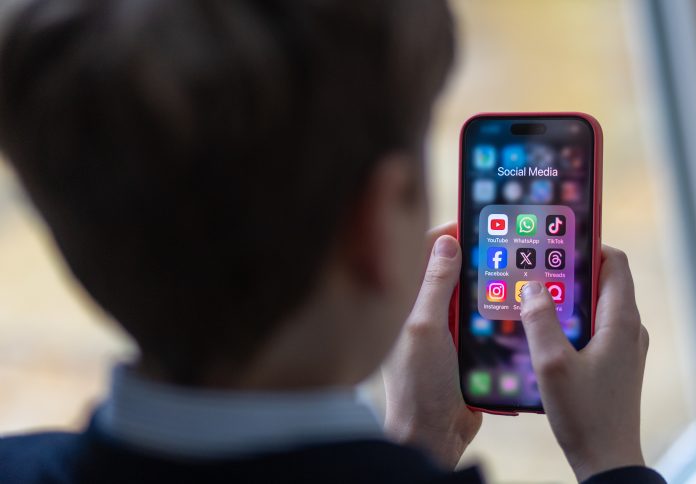When it comes to kids and screen time, less is definitely more.
A recent study from Denmark, led by Dr. Jesper Schmidt-Persson at the University of Southern Denmark, examined the impact of reduced screen media exposure on youth mental health.
The study involved 89 families, with a total of 181 children and teens, who were randomly divided into two groups.
One group was required to surrender their smartphones and tablets for two weeks and limit their use of other screen media, such as TV and computers, to three hours or less per week, excluding school or work-related use.
The other group had no restrictions on screen time.
Results showed that the families who limited their children’s screen exposure observed improvements in the kids’ mental health—particularly in managing emotions, communicating with peers, and reducing behavioral difficulties.
The children ranged in age from 4 to 17, with an average age of 8 to 9 years old. At the end of the study, families completed a Strengths and Difficulties Questionnaire (SDQ) to assess the children’s psychological symptoms.
The findings, published last month in JAMA Network Open, highlighted that limiting screen time led to significant improvements in how children managed their emotions, communicated with peers, and reduced behavioral issues.
Fox News Digital reached out to the study’s lead researcher for further comment.
Risks of Excess Screen Time for Kids
In 2023, the U.S. Surgeon General issued an advisory on youth social media use, emphasizing the associated mental health risks.
“There is evidence that children with excessive screen time or early access to social media are more likely to experience depression or anxiety,” said Dr. Joshua Stein, a child and adolescent psychiatrist and clinical director at PrairieCare in Minnesota, in a previous interview with Fox News Digital.
A Gallup research study from 2023 found that teens who spend more than five hours a day on screens are 60% more likely to have suicidal thoughts or engage in self-harm.
“These children were 2.8 times more likely to have a negative body image and 30% more likely to describe feeling ‘a lot of sadness,'” added Stein, who was not involved in the Denmark study.

What’s a Healthy Amount of Screen Time for Kids?
The American Academy of Pediatrics (AAP) recommends limiting screen time to two hours per day for children aged 2 and older, while discouraging any media use for children under 2.
The American Academy of Child & Adolescent Psychiatry (AACAP) offers specific guidelines for different age groups. For infants up to 18 months, screen use should be limited to video chatting with an adult. For children aged 18 to 24 months, screens should be used only for educational programming.
For kids aged 2 to 5, the AACAP recommends limiting non-educational screen time to one hour on weekdays and three hours on weekends.
“For children, the least amount of screen time is the healthiest,” said Dr. Zeyad Baker, a pediatric physician with Baker Health in New Jersey, in a previous interview with Fox News Digital. He acknowledged the challenges parents face in moderating screen use, especially when kids need to do homework online, and emphasized the importance of quality over quantity when it comes to screen time.
“If screen time is used for educational purposes or to explore valuable information, it differs greatly from consuming mindless content online,” Baker said.
He suggested allowing children access to social media or specific TV channels only on weekends, and focusing on academic-related screen content during the week. Parents should avoid framing screen time limits as a punishment and instead encourage alternative activities, such as outdoor play, which benefits both physical and mental health.


